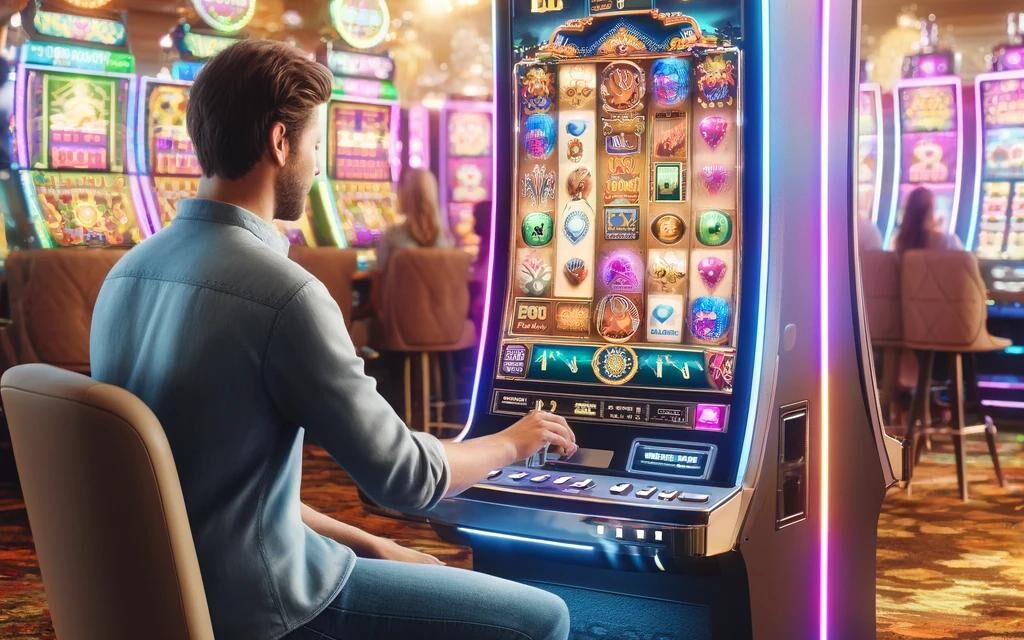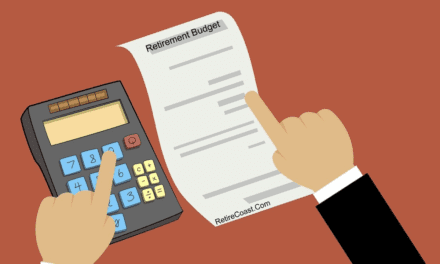Last updated on January 13th, 2026 at 02:37 pm
How do slot machines work? Can I actually win? The answer is that you can win. This article will provide you with a good understanding of how slots work and why you may win.
Sit down at a casino slot machine, feed your money in, and be prepared for? Most of us believe we will win, or what would be the point, except for some machines that are just fun to play? This article discusses slots at physical casinos in the United States; online slots may or may not offer similar payouts.
Live casinos offer much more than just the opportunity to play slot games. Slot players in most casinos have access to free beverages, earn points towards free meals, and have other benefits as well, including free play. Mortar casinos offer an atmosphere that includes free entertainment. Special offers are available on specific days of the week.
Are Slot Machines in Regulated Casinos “Rigged”?
In properly regulated casinos, slot machines are not “rigged” in the way most people imagine. In the United States, commercial casinos and tribal (Indian) casinos operate under strict gaming regulations. Their slot machines use certified random number generators and must meet specific payout and testing standards set by gaming commissions and regulators.
I have personally visited casinos in Las Vegas, Atlantic City, along the Mississippi Gulf Coast, and many Indian casinos. All of these operate under regulatory oversight. In all of those years and locations, I have never seen a slot machine behave in a way that suggested it was secretly altered or “flipped” to cheat players, nor have I met anyone with genuine, first-hand knowledge that a regulated casino rigged a machine.
People naturally look for patterns when they lose, which is why stories about “rigged” slots spread on forums and Q&A sites. But I have never come across a credible, detailed article explaining how a regulated casino supposedly rigged a specific machine and was caught doing it. In well-regulated jurisdictions, the business model already favors the house through the built-in edge — casinos do not need to risk their licenses and reputation by cheating with rigged machines.
- Are Slot Machines in Regulated Casinos “Rigged”?
- Slot machines are video games.
- Here’s how slot machines balance payouts:
- Random Number Generator
- Settings are tightly regulated
- Can a slot machine pay too much?
- Do some slots pay more than others?
- Do newly introduced slots pay more or less?
- Do slots with progressive bonuses pay more with higher bets?
- Are small bets better than large bets for earning the most?
- 1. Bankroll Management and Playtime
- 2. Impact on Payout Percentages
- 3. Bonus Features and Progressive Jackpots
- 4. Volatility and Win Frequency
- 5. Maximizing Potential Returns
- Summary
- Slot tip: No need to bring cash with you if you have an ATM card. There will be a small charge to remove the amount of money you want from the ATM machine. Your card will have a daily withdrawal limit which is good.
- Should I play a machine that has just paid out a jackpot?
- If I pull out my player’s card and money and then put it back in, will it trick the machine?
- What are the top 10 superstitions related to slot machine play?
- If a slot machine is paying and I am ahead, should I make larger bets?
- Will stopping slot machines increase the chances of winning?
- Summary
- Staying on the Mississippi Gulf Coast
- Frequently Asked Questions
Casinos will not issue a reporting form for slot machine winnings under $2,000 for jackpots paid on or after January 1, 2026.
Slot machines are video games.
Modern slots are actually a version of a video game. Screens have improved, as have the consoles. They are more comfortable with footrests and places to put your drink. The modern slots of today are far removed from the first slots with cherries and a handle.
Programmers actually create interesting situations where players have choices within the games. Sometimes an outcome challenges you to move to another selection until you finish the game. There are many types of slot machines, including video poker, which are very popular. I enjoy playing blackjack on a machine at the bar where I can get great drinks and play with less money.
Social casinos are physical properties where you can enjoy the company of others. The best online casinos can only offer gambling. As you read through this article, you will come to some conclusions about playing slots. I will recap at the end on how you can enjoy yourself on a budget. Look out for “Slot Tips” as you read.
Game designers set the payout frequency of physical slot machines by configuring the “return to player” (RTP) rate, a percentage that determines how much of the money played is returned to players over time.
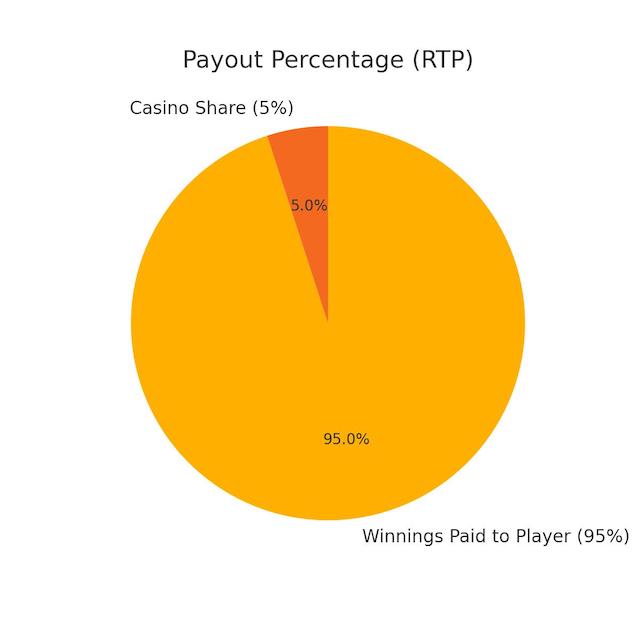
Here’s how slot machines balance payouts:
- RNG (Random-Number Generator): Slot machines rely on an RNG, a computer program that ensures each spin outcome is independent of previous spins, creating a fair and random experience. The RNG generates the symbols that appear on the reels, which can vary in probability to control how often winning combinations appear.
- Payout Percentage (RTP): The RTP, set by the programmer based on the casino’s requirements, is typically between 85% and 98%. For instance, a slot with a 95% RTP will theoretically pay back $0.95 for every $1 played over the long term. This percentage is tuned carefully to ensure profitability for the casino while still allowing players a chance to win.
- Virtual Reels: Physical machines may have a limited number of symbols on each reel, but virtual reels behind the scenes can have many more positions. Programmers map the actual reel symbols to these virtual reels, which helps control the likelihood of high-value symbol combinations appearing. This setup means rare, high-payout combinations can appear without being overly frequent.
- Payback Calibration: Slot machine manufacturers create different versions of a machine with slightly varied payout percentages. Casinos then select a version based on how generous or conservative they want the machine to be. Laws and regulations often mandate specific ranges for RTP to ensure fairness.
- Hit Frequency: This is the rate at which the machine gives out any prize, big or small. Machines with high hit frequencies often pay smaller prizes more frequently, keeping players engaged. This doesn’t affect the RTP but creates the illusion of more regular wins, which can make players feel more successful.
- Progressive Jackpots and Bonus Features: Many modern slot machines offer special features like progressive jackpots or bonus rounds. These features are programmed to occur less frequently than regular wins, balancing the chances of high payouts while keeping the overall payout within the target RTP. Progressive slot machines are very popular.
Random Number Generator
Try out the Random Number Generator above, you can change the minimum and maximum, then press “generate”.
Settings are tightly regulated
These settings are tightly regulated, and independent bodies routinely inspect machines to ensure compliance. This balance of RNG, virtual reel mapping, and payout settings allows slot machines to be fair but also profitable for casinos.
To summarize this technical discussion about the random number generator and the “return to player” discussion, please understand this: By law, you must be able to win something while playing a slot machine. This does not mean that you do not lose what you start playing with. It means that during your play, some results will benefit you, and others will benefit the house.
Ultimately, the house benefits the most. It must be for them to stay in business. Consider a day when you are playing machines and you can’t lose. You keep winning, and at the end of the day, you take home several hundred dollars. Great. This also means that other players take home nothing; you earned the money that day.
This is the same with large payouts; they are infrequent, and while you may win $4,000, someone else loses. Never believe that you will leave the casino with what you started with each and every time. Don’t forget that you are there in large part for enjoyment, and there is a price for that. Go to Disney World, spend hundreds, and walk away with a good feeling that you had fun.
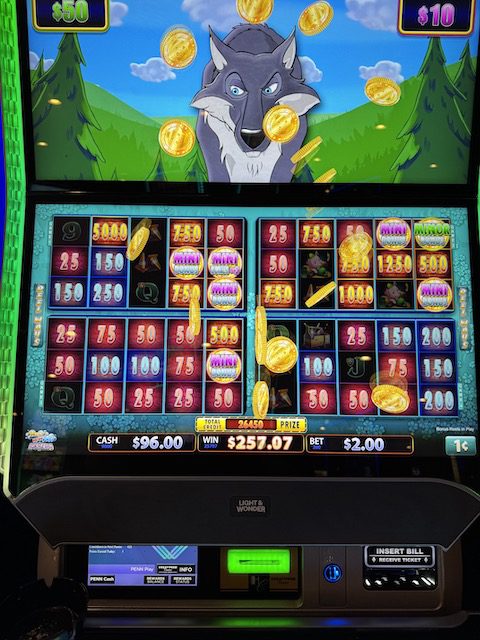
Slot tip: Don’t forget to take your ticket. I have on occasion left it behind and returned to find it gone.
I thought that the best way to explain this topic is by creating an “FAQ” which follows:
Can a slot machine pay too much?
Yes, a slot machine can occasionally pay out more than its intended rate over a short period, but this is typically within the bounds of random chance rather than a lasting “overpayment.” Here’s how this can happen and why it doesn’t usually affect long-term profitability:
- Short-Term Variance: Slot machines operate on RNG (random number generation), so payouts can fluctuate widely in the short term. This variance can lead to periods where a machine pays out a higher percentage than its set RTP (Return to Player). For instance, a player might hit several high-paying combinations close together, creating an impression of a “hot” machine, even though this is due to random chance.
- Jackpots and Big Wins: Occasionally, a machine might pay out a large jackpot, which can temporarily skew the payout ratio. However, jackpot features are typically factored into the overall RTP, so the machine is designed to “recover” from these big payouts over time by paying less frequently afterward. Progressive jackpots, in particular, are pooled from many machines or locations, spreading out the payout impact.
- Regulation and Testing: Slot machines undergo rigorous testing and certification by regulatory bodies to ensure they operate within specified payout ranges. They’re regularly checked to confirm compliance with their programmed RTP, preventing lasting overpayments. If a machine’s payout starts deviating consistently above the expected range, casinos usually investigate and adjust settings if needed.
- House Edge and Volume of Play: Casinos count on high volume and long-term statistics to balance any short-term overpayments. Even if a machine pays out more in the short term, the house edge (built into the RTP) ensures profitability over millions of spins.
- Possible Malfunctions: Rarely, a technical malfunction can cause a machine to pay out more than intended. Casinos maintain strict protocols to detect and repair any faulty machines. Malfunctions can lead to temporary overpayments, but once identified, the machine is taken offline for recalibration or repair.
Overall, while a slot machine can appear to pay “too much” at times, this is a short-term phenomenon. The RNG and payout settings are designed to correct this over time, bringing the machine back to its programmed RTP.

Do some slots pay more than others?
Yes, some slot machines are designed to pay out more than others, typically due to their programmed RTP (Return to Player) percentage. Here’s how and why some machines can have higher payouts:
- Higher RTP Machines: Every slot machine has an RTP, which indicates the average payout percentage over time. For instance, a slot with a 96% RTP theoretically returns $0.96 for every dollar wagered over a long period. Machines with higher RTPs pay back more to players on average, although they still retain a house edge. Some casinos offer “loose” slots with higher RTPs (often 95% and above) to attract more players.
- Game Type and Volatility: Some slot machines have lower volatility, meaning they pay smaller prizes more frequently. High-volatility slots pay out larger prizes but less often, which can make them feel less rewarding in the short term. Casinos can offer a mix to cater to different types of players, and these differences in volatility can affect the perception of how much a machine “pays.”
- Location and Casino Strategy: Casinos sometimes place machines with higher payouts in visible areas to attract players. Known as “loose slots,” these machines are strategically positioned in high-traffic areas to catch players’ attention. Machines placed deeper in the casino or less-trafficked areas may have a slightly lower RTP.
- Progressive Jackpots: Machines connected to progressive jackpots often have a slightly lower RTP because a portion of each bet goes toward building the jackpot. However, the potential jackpot payout can be much higher, offering a big win at the cost of smaller, frequent payouts.
- Promotional Slots: Some casinos advertise “high-payout” slots as part of special promotions, increasing the RTP temporarily or offering machines with more frequent bonus rounds. These promotional machines can give the impression of paying more than others, but they often return to standard RTP rates after the promotion period.
- Regulations by Jurisdiction: Certain jurisdictions require minimum RTP percentages, so slots in these locations may have higher RTPs compared to areas with lower requirements. For example, some states require slot machines to have a minimum RTP of 85%, while others may set it at 90% or higher, leading to regional differences in payouts.
Slot tip: Don’t flash money around. Remove only as much as you will put into a machine from your wallet or purse.
In summary, while all slot machines are programmed to ensure casino profitability, some machines are indeed set to pay more frequently or have higher RTPs, creating the perception of being more “generous.” Over time, though, all machines are designed to stay within their programmed payout range.
Do newly introduced slots pay more or less?
Newly introduced slot machines often have a reputation for paying more initially, but this perception varies by casino and slot machine type. Here’s how and why this might happen:
- Initial High Payouts to Attract Players: Some casinos may set slightly higher RTPs (Return to Player percentages) on new machines to attract attention and build excitement. This can give players the impression that the new slot is “hot.” If a machine seems to pay more often in the early days, it may draw more players to try it.
- Variance and Random Luck: Even without adjusting payout percentages, new machines can appear to pay more simply due to variance or random luck. Since players are particularly interested in new games, more spins are placed, and winning patterns may become more noticeable. A few lucky wins early on can create a reputation for a new machine being a “loose slot.” Particularly when the machine has scatter pays.
- Promotional Strategies: Some casinos may run promotional periods for new slots, where the machines might have boosted payouts or bonus features to encourage play. These promotions could involve more frequent bonuses, free spins, or other incentives. After the promotion, the machines return to their standard payout percentages.
- Resetting RTP to Standard Levels: Casinos usually aim for consistent profits and will eventually set all slot machines, including new ones, to stable RTPs that match their target profitability. After an initial period, new machines will likely settle to the standard payout level, aligning with the casino’s overall payout structure.
- Confirmation Bias: Players may also experience a psychological effect called “confirmation bias.” When they believe new machines pay more, they remember wins more strongly and may dismiss losses as “bad luck,” reinforcing the impression that new slots are “hot.”
- Regulatory Constraints: In regulated markets, casinos are limited in how much they can change RTP rates, so any perceived increase in payouts is generally subtle. Regulatory bodies ensure that payouts fall within approved ranges, making it unlikely for a new slot to be programmed to pay significantly more or less over the long term.
In the long run, newly introduced slots will align with the casino’s standard payout structure, but they might initially pay a bit more as a promotional tactic to attract players. Over time, like all slot machines, their performance stabilizes within their programmed RTP.

Do slots with progressive bonuses pay more with higher bets?
In slot machines with progressive jackpots not tied to the bet amount, all players have an equal chance to win the progressive bonus regardless of their bet size. This means that the jackpot is accessible at minimum bets, offering a chance to win big without requiring higher bets. Here’s how it works and what it means for payouts:
- Equal Access to Jackpot: When a progressive jackpot isn’t tied to the bet size, every spin has the same probability of hitting the jackpot, whether a player is betting the minimum or maximum amount. This can make these machines more appealing to low-stakes players, as they can still aim for the big win without betting large amounts.
- Fixed Return to Player (RTP): The RTP percentage of the machine remains the same regardless of bet size. This means that the overall payout rate is the same across different bet levels. Higher bets won’t improve the chance of hitting the jackpot, but may affect the frequency and size of regular payouts.
- No Increased Payback for Larger Bets: Because the progressive jackpot is independent of the bet amount, placing higher bets does not increase the odds of winning the progressive prize itself. Higher bets, however, might unlock additional features or larger non-progressive payouts, depending on the game’s design.
- Flat or Capped Contribution to Progressive: In some cases, each bet, regardless of size, contributes a fixed amount or small percentage to the progressive jackpot pool. This setup ensures the jackpot grows at a consistent rate regardless of how much each player is betting.
- Advantages for Low-Bet Players: These types of progressive slots can be attractive to low-bet players, as they offer the chance to win a significant prize without needing to wager large amounts. However, players betting more may feel they’re not getting an increased advantage or proportionate value toward the jackpot.
In summary, on slots where the progressive jackpot is not tied to the bet amount, all bets have an equal chance to trigger the jackpot. This setup doesn’t inherently pay more for higher bets for the progressive prize, although higher bets may still yield larger regular payouts or bonuses in some games.
Slot tip: If you win a large bonus, in the thousands, you can ask the casino for a check; no need to risk getting robbed.
Slot tip: If you win a large bonus, in the thousands, you can ask the casino for a check, no need to risk getting robbed.
Are small bets better than large bets for earning the most?
Whether small bets are better than large bets for earning the most on a slot machine depends on the player’s goals, risk tolerance, and the specific slot machine’s design. Here’s a breakdown of how smaller versus larger bets affect potential winnings and overall gameplay:
1. Bankroll Management and Playtime
- Small Bets: Smaller bets help extend bankrolls, allowing players more spins and time on the machine. This longer playtime can increase the chances of hitting smaller, consistent wins or triggering bonus features, leading to more engagement with the game. For players aiming to maximize playtime and minimize losses, small bets are often better.
- Large Bets: While larger bets use up bankrolls more quickly, they can lead to higher payouts when winning combinations hit. However, this also means that losses add up faster, potentially leading to a quicker end to a session.
2. Impact on Payout Percentages
- Generally, most slot machines are programmed with a fixed RTP (Return to Player) percentage that doesn’t change based on the bet amount. However, some high-denomination slots or high-limit areas may have slightly higher RTPs, potentially making larger bets slightly more favorable in those cases.
3. Bonus Features and Progressive Jackpots
- Bonus Eligibility: On some slot machines, certain features or bonus games are only accessible at higher bets or specific bet levels. This can make larger bets necessary to unlock all the features the game offers.
- Progressive Jackpots: Many progressive jackpot slots require players to bet the maximum or a minimum threshold to qualify for the jackpot. If the goal is to win a progressive jackpot, larger bets may be required to be eligible, but some progressive slots, as discussed, have jackpots open to all bet sizes.
4. Volatility and Win Frequency
- Low Volatility Machines: These machines tend to pay smaller amounts more frequently. For low volatility slots, small bets can be advantageous, as they allow a steady return that might accumulate over time.
- High Volatility Machines: High volatility slots pay larger amounts but less frequently, often with a focus on big wins. For these machines, players might prefer larger bets to maximize winnings when a high-value combination does hit.
5. Maximizing Potential Returns
- Small Bets: In the long run, small bets minimize losses and risk while providing a steady experience. This approach is ideal for casual players or those looking to play for entertainment rather than significant profits.
- Large Bets: Larger bets maximize potential winnings when a machine pays out, but also increase the financial risk. For players willing to risk their bankroll quickly for a chance at bigger payouts, large bets may feel more rewarding.
Summary
- Small bets are generally better for maximizing playtime, minimizing losses, and earning small, consistent payouts.
- Large bets may yield bigger individual wins but come with higher risk, especially on high-volatility machines or when chasing jackpots.
The best approach depends on whether the goal is prolonged play and gradual earnings or high-risk, high-reward wins.
Slot tip: No need to bring cash with you if you have an ATM card. There will be a small charge to remove the amount of money you want from the ATM machine. Your card will have a daily withdrawal limit which is good.

Should I play a machine that has just paid out a jackpot?
Whether or not you should play a slot machine that has just paid out a jackpot is ultimately a matter of personal preference rather than a strategic advantage. Here are a few points to consider:
- Each Spin is Independent: Slot machines operate on random number generators (RNGs), which ensure that each spin is independent of the last. This means that a machine can theoretically hit a jackpot back-to-back or go a long time before another big payout. The fact that it recently paid out does not affect its likelihood of paying out again.
- Probability Remains Unchanged: When a jackpot is hit, the probability of the next spin winning remains the same as before. Slot machines don’t have “cooling-off” periods after a jackpot, nor do they have memory, so the odds are the same as if no jackpot had occurred.
- Volatility and Jackpot Size: Machines with high volatility pay out less frequently but with bigger rewards, while low-volatility machines pay smaller prizes more frequently. Knowing the type of machine you’re playing might help you decide if you’re comfortable with the payout pattern, regardless of a recent jackpot.
- Progressive Jackpots and Reset: In progressive jackpot slots, the jackpot amount resets to a minimum after a win and then begins to grow again. Some players prefer waiting until the jackpot amount has grown before playing these machines. If you’re drawn to bigger potential wins, you may want to wait for the jackpot to increase.
- Personal Superstitions and Comfort Level: If you feel uncomfortable playing a machine that just paid out, it might affect your enjoyment. For many, gambling is about entertainment, and feeling confident and comfortable enhances the experience.
- Slot Selection Based on RTP: Rather than basing play on recent payouts, many players find it more helpful to choose slots based on their RTP (Return to Player) and volatility. Machines with higher RTPs statistically pay back more over time, though they still have the same element of randomness.
In conclusion, you can certainly play a machine that has just paid out a jackpot, as it has just as much chance of paying out again as any other time. The choice ultimately comes down to personal preference and comfort level rather than any technical advantage or disadvantage.
If I pull out my player’s card and money and then put it back in, will it trick the machine?
The idea of removing and reinserting a player’s card or money to “trick” a slot machine is a common myth among players. However, modern slot machines are designed to ensure fairness and randomness, making this tactic ineffective. Here’s why:
- Random Number Generator (RNG): Slot machines use RNGs to determine the outcome of each spin independently. This means each spin is random and unaffected by prior or subsequent spins. Pulling out your card or money has no impact on the RNG or the machine’s payout cycle.
- Player Card Only Tracks Play: The player’s card simply logs your play activity for rewards or loyalty points. It doesn’t influence the game’s outcomes, payouts, or frequency of wins. Casinos use this data to offer you rewards, but it doesn’t affect your odds on the machine itself.
- No Memory of Previous Play: Slot machines are programmed without memory of past outcomes, so stopping and restarting play doesn’t “reset” the machine or improve your odds. Each spin is an isolated event with the same probability, regardless of whether you play continuously or pause and return.
- Preventing Superstitions and Patterns: Casinos and regulators design slot machines to prevent predictable patterns or “tricks.” The RNG makes sure that each outcome is unpredictable, discouraging tactics like stopping and restarting play.
While pulling out your card or money won’t improve your odds, it might help you pause to consider your spending or refresh your focus. But from a technical perspective, this doesn’t impact the machine’s payout patterns or randomness.

What are the top 10 superstitions related to slot machine play?
Here are the top 10 superstitions many players hold about slot machines, even though they have no actual effect on the outcome:
- Hot and Cold Machines: Players often believe a machine that hasn’t paid out recently (a “cold” machine) is “due” to hit, or that a “hot” machine will continue paying out. In reality, each spin is independent, and previous results don’t affect future outcomes.
- The “Lucky Seat” Myth: Many players feel certain seats or specific machines are luckier than others. While comfort can improve the playing experience, sitting at a particular machine or seat won’t influence results.
- Specially touching the Screen or Buttons: Some players believe that tapping or rubbing the screen, or hitting the spin button with a specific rhythm or pressure, can change their luck. However, outcomes are determined before physical interaction with the screen or buttons.
- Inserting Money or a Player’s Card in a Special Way: Some players think inserting money or their loyalty card in a certain way, or repeatedly pulling it out and reinserting it, will improve their chances of winning. Slot machines don’t track how money or cards are inserted, and these actions don’t affect gameplay.
- Playing at Certain Times of Day: A common superstition is that slots pay out more at specific times, such as late at night or during slower hours. This belief persists despite casinos’ consistent RTP settings and the fact that payouts are randomly generated.
- Betting Patterns Affect Payouts: Some players believe that alternating between high and low bets or using specific bet sizes in sequence can influence payouts. While it may help manage bankrolls, bet sizes or patterns don’t change the RNG outcomes.
- “Fresh” Machines After a Jackpot: Many players avoid machines that just paid a big jackpot, thinking they won’t pay out again for a while. However, slots have no memory of previous spins, and a machine can theoretically hit another jackpot immediately after one is won.
- Lucky Charms or Items: Some players carry lucky charms, like specific jewelry, coins, or trinkets, thinking they’ll bring good luck. While these may boost confidence, they don’t affect a machine’s RNG.
- Playing Next to a Winning Machine: Some believe that machines near recent winners are luckier than others, assuming certain areas of the casino pay more. This placement doesn’t affect individual machine payouts, as each machine operates independently.
- Rituals Before Starting Play: Players may perform a ritual, like touching the machine, saying a phrase, or blowing on the screen for luck. These rituals can be calming or confidence-boosting, but they don’t influence the machine’s results.
These superstitions are part of the gaming experience and can make play more enjoyable for some, but slot machines are entirely luck-based. Outcomes are determined by RNGs, making each spin independent of the last and uninfluenced by any external factors or rituals.
Slot Tip: Women, don’t take a large purse to the casino. Put money in your pocket or carry an over the shoulder bag. This way you will not forget your purse and it will not get robbed.
If a slot machine is paying and I am ahead, should I make larger bets?
If you’re ahead on a slot machine, deciding whether to make larger bets depends on your goals, risk tolerance, and the specific game’s mechanics. Here are some considerations to help you decide:
- Risk vs. Reward: Larger bets mean higher potential payouts but also faster losses if luck turns. If you’re comfortable with the idea of risking more of your winnings, increasing your bet can make for exciting gameplay. But if you’d rather preserve your gains, sticking to your usual bet or even lowering it might be wise.
- Bankroll Management: A common approach is to take a portion of your winnings and set it aside, ensuring you walk away with some profit. Then, you can use a portion of your “profit cushion” to place larger bets without risking your initial bankroll. This way, you enjoy the potential for bigger wins without risking everything.
- Slot Volatility: Higher bets can make more sense on high-volatility slots, where bigger wins are less frequent but larger when they do occur. If you’re on a low-volatility machine that pays small, frequent prizes, increasing your bet may not yield significantly larger rewards and could just speed up spending.
- Machine Features and Bonuses: Some slots offer bonus features or jackpots that are only accessible at higher bet levels. If the slot machine has a special feature or progressive jackpot that larger bets unlock, raising your bet might make sense if you want to increase your chances of triggering these features.
- Know Your Limit and Set a Stop Point: Decide in advance how much you’re willing to risk from your winnings and set a clear stopping point. If you decide to increase your bets, knowing when to cash out helps you avoid walking away with nothing.
- Psychological Factors: Winning can create a “hot streak” mentality, but remember that each spin is random. It’s important not to let a streak of wins override good judgment. Larger bets should be intentional rather than impulsive.
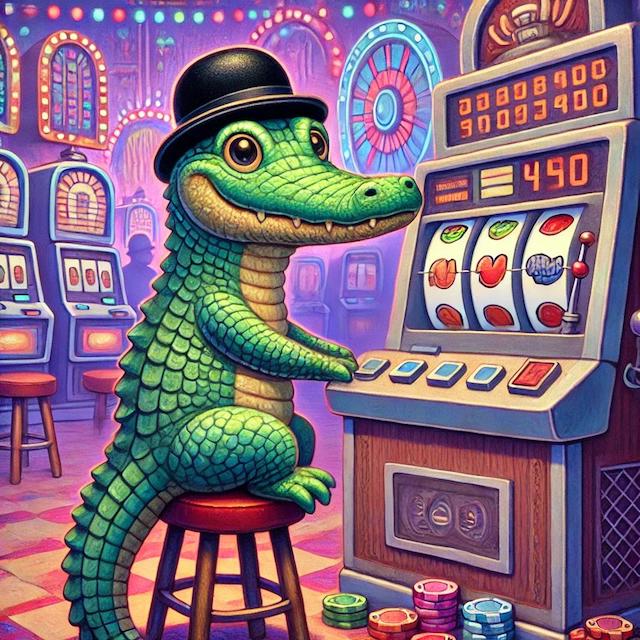
Will stopping slot machines increase the chances of winning?
No, stopping the slot machine at a specific moment does not increase your chances of winning. Slot machines are designed to ensure that every outcome is completely random and independent of player actions. Here’s why stopping the machine doesn’t affect your odds:
- RNG Determines Results: Slot machines use a Random Number Generator (RNG) to determine the outcome of each spin the moment you press the “Spin” button. The reels spinning on the screen are just for visual effect; the actual result is already decided by the RNG. Stopping the reels doesn’t alter this pre-determined result.
- Purely for Aesthetic Control: Many slot machines allow players to stop the reels to feel more interactive control, but it’s purely a cosmetic feature. Whether you let the reels stop on their own or press the button to stop them, the outcome remains the same.
- No Skill-Based Influence: Slot machines are designed to be games of pure chance, with no element of skill or timing involved. Stopping the reels, pressing the button at a certain speed, or using any other technique won’t impact the payout because every spin is statistically independent.
- Game Design and Fairness: Casinos and regulators design slot machines to ensure fairness, preventing any player’s actions from influencing payouts. This is why no specific technique, like stopping the reels, can improve your chances of winning.
In summary, stopping the slot machine is an option purely for player preference but has no impact on the outcome or the odds of winning. Each spin remains random, with results determined the moment you initiate the spin.
Slot tip: Play macines at the bar for free drinks. If you are on your way to the restaurant, get a free drink and take with with you.
Summary
If you are not going to a gambling machine for the specific purpose of earning enough to pay the mortgage, play with less money. I see people playing 80 cents, which is typically the lowest amount you can bet. They can play for hours, betting less than one dollar, moving to different slots.
As this article states, you can win the top bonuses by betting the lowest amount. I was walking by a group of slots one day, and a woman won $10,000 playing 80 cents. It actually happens. Based on the data above, slots do not decide who gets the big bonus based on what they bet.
There are some exceptions, and you will see that when you sit down. Often, the minor and mid bonuses are reflective of the amount bet. The top bonus is usually not, but not always.
Slot tip: Always check the amount to lay, e.g., 1 cent, 5 cents, etc. I had often started playing when the previous player had set it on a much higher amount. One time, I put in a $100 bill and hit the button twice and won $4,500. After the attendant left to get my money, I resumed playing on the same machine, and after only two more hits, it was gone. What happened to that much money so quickly? It was set at $25 per hit.
This time I won, but other times I did not pay attention and my funds disappeared.
Check out this article about jackpots; it will give you some ideas for creating your strategy. The Mississippi Gulf Coast has 12 casinos, the most outside of Las Vegas. Read this article, which goes into more detail on old machines vs new machines.
Staying on the Mississippi Gulf Coast
Plan a trip to visit and stay at Christies Gulf Beach Rentals where you can rent a great vacation property near the beach. Christies Gulf Beach Rentals has vacation rental properties in Biloxi and Gulfport, where most of the casinos are located.
Disclaimer.
We are not encouraging anyone to gamble. If you choose to do so, it’s your responsibility. Also, some content may not be accurate now or in the future. We are not responsible for the actions anyone has taken as a result of reading this article. Remember what was said above: the casino will eventually earn your money in exchange for an opportunity to win.
Never go to a casino with the attitude that you are going there to make money. Instead, go with the attitude that you are going to the casino for amusement.
Frequently Asked Questions
Living in Mississippi offers low housing costs, affordable healthcare, and a slower pace of life. The warm climate and friendly communities make it attractive for retirees. On the downside, wages and job opportunities can be limited, and parts of the state experience extreme weather like hurricanes and humidity.
Some of the best Mississippi communities for seniors include Ocean Springs, Pass Christian, and Bay St. Louis. These Gulf Coast towns combine affordable housing, medical access, and vibrant cultural scenes. Many seniors also enjoy Gulfport for its amenities and proximity to beaches.
On average, retirees in Mississippi can live comfortably on $45,000–$55,000 per year, depending on lifestyle. Housing is about 30% lower than the national average, and Mississippi exempts Social Security income from state taxes. This makes it one of the most affordable retirement states.
Yes. Mississippi is considered retirement friendly because of its low cost of living, no state tax on Social Security, and relatively mild winters. Retirees also benefit from affordable real estate and a variety of cultural and outdoor activities along the Gulf Coast.
The “$20 method” is a slot machine strategy where a player inserts $20 into multiple machines and plays a set number of spins, cashing out quickly if they win. It is more of a budgeting tactic than a guaranteed winning method, and results vary widely.
Popular retirement businesses include consulting, property management, online stores, and service businesses such as bookkeeping or home repair. The best choice depends on your skills, interests, and how hands-on you want to be during retirement.
Yes. Many entrepreneurs launch businesses later in life with great success. Experience, professional networks, and financial stability often give older entrepreneurs an advantage. Examples include real estate investing, consulting firms, and small service businesses tailored to local communities.
Discover more from RetireCoast.com
Subscribe to get the latest posts sent to your email.

